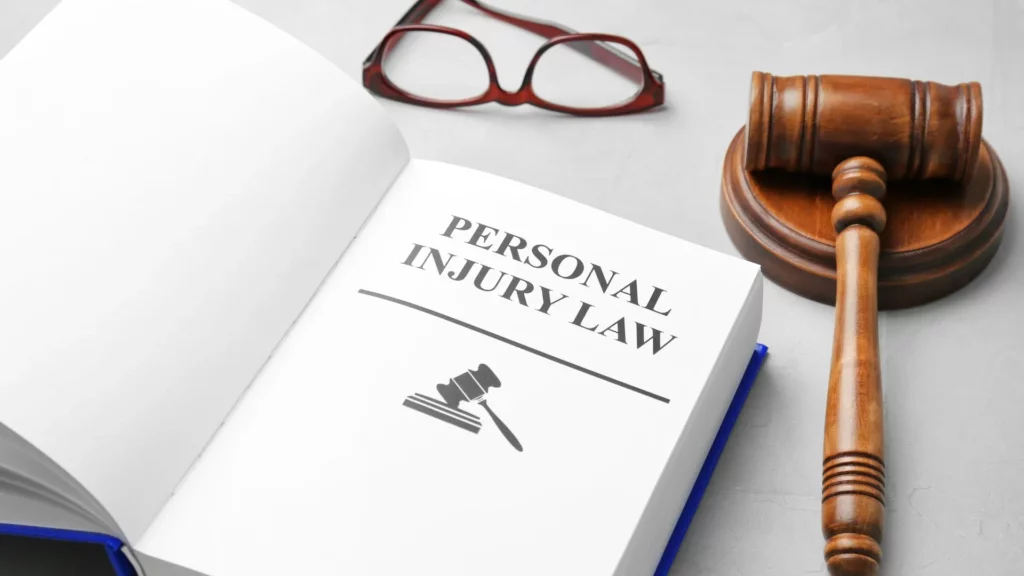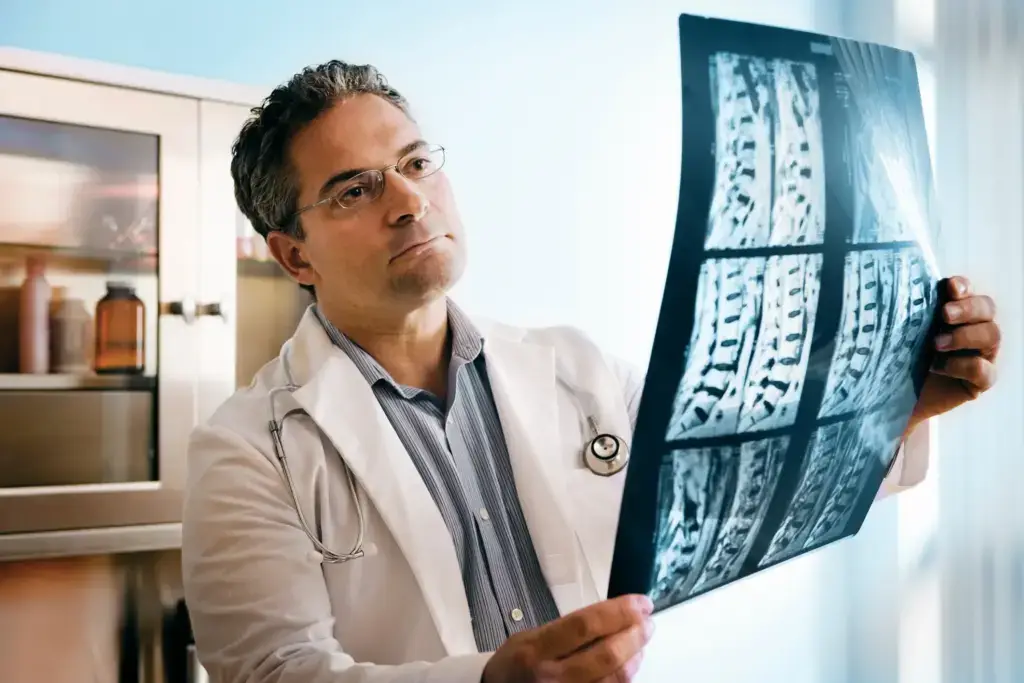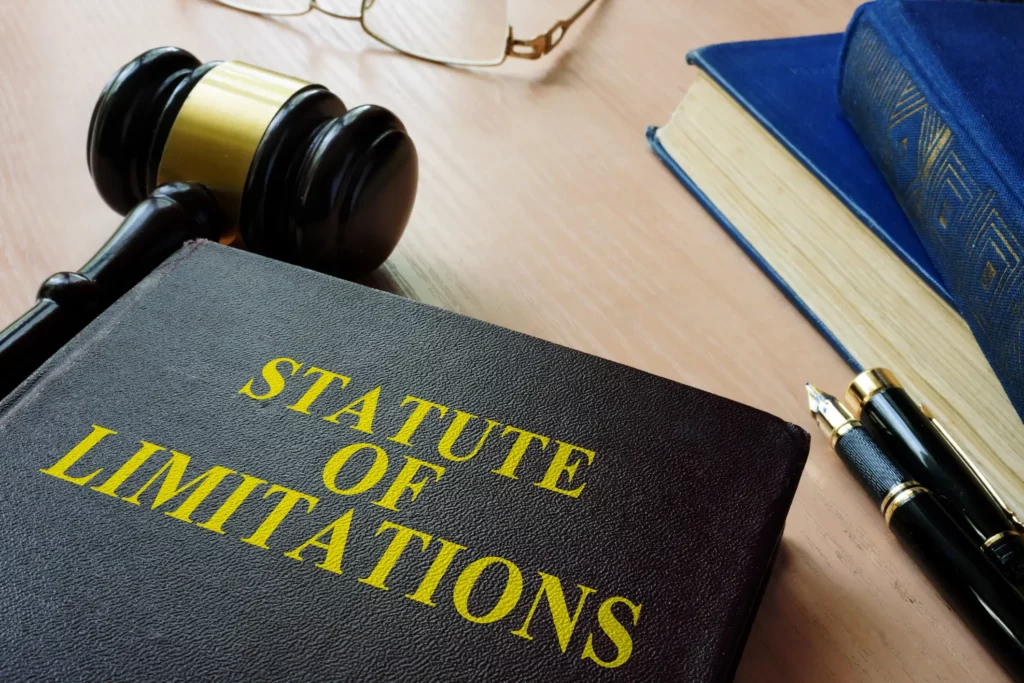Nestled in the foothills of Los Angeles County, Glendora, California, has grown steadily over the past decade. With its scenic neighborhoods, reputable schools, and easy access to LA, the city attracts families and professionals alike. But with this growth comes heavier traffic and an unfortunate rise in personal injury accidents. If you’ve been injured due to someone else’s negligence, knowing your legal rights and who to call can make all the difference.
At West Coast Trial Lawyers, our team of personal injury lawyers are committed to fight for your rights and help get you the justice and compensation you rightfully deserve. Led by former federal prosecutor, Neama Rahmani, West Coast Trial Lawyers is a nationally trusted and respected law firm with over 20 years experience.
As a result of our dedication to helping clients, we have recovered over $1.7 billion in financial compensation for our clients and we will continue to do our duty to represent them and watch out for their best interests. Whether you have been injured in a car accident or a truck accident, our personal injury lawyers will guide you throughout the legal process.
Speak to one of our lawyers on your very first call for a FREE case review by calling (213) 927-3700 or complete this easy online contact form.
Understanding Glendora Personal Injury Claims

Personal injury law—also called tort law—gives people the right to pursue compensation when they’re harmed by another party’s careless or reckless actions. Unlike criminal cases, where the goal is punishment, personal injury cases aim to restore the injured party as much as possible to their pre-accident condition.
There is a broad range of claims an injured person can file to seek compensation for harm caused by another party’s negligence or wrongful conduct, including car accidents, slip and falls, dog bites, workplace injuries, and medical malpractice.
Here are 15 of the most common types of personal injury law:
- Car Accident
- Pedestrian Accident
- Premises Liability
- Bicycle Accident
- Dog Bite
- Motorcycle Accident
- Scooter Accident
- Uber & Lyft Accident
- Wrongful Death
- Truck Accident
- Bus Accident
- Brain Injury
- Burn Injury
- Spinal Cord Injury
- Food Delivery Accident
Whether you were hurt in a vehicle accident or workplace incident, understanding your rights under California law is the first step toward healing and justice.
Common Causes of Personal Injury Accidents
The most frequent personal injury cases in Glendora stem from a combination of everyday activities and unexpected hazards. These include high-traffic car accidents along major roads like Route 66 and the 210 Freeway, slip and fall incidents in busy retail and residential areas, and pedestrian accidents in increasingly walkable neighborhoods. Additionally, workplace injuries from local construction and industrial jobs contribute to the growing number of injury claims. Some of the most common causes of personal injury include:
Negligence
Negligence is the most frequent cause of personal injury claims. It occurs when an individual or entity fails to exercise reasonable care, resulting in harm to another person. For example, a driver who runs a red light and causes a collision may be found negligent. Property owners who don’t fix hazardous conditions, like wet floors or broken stairs, may also be liable if someone gets hurt. In legal terms, proving negligence typically requires showing that the at-fault party owed a duty of care, breached that duty, and caused actual harm as a result.
Recklessness
Recklessness goes beyond ordinary negligence. It involves willfully ignoring known risks or acting with a conscious disregard for the safety of others. Unlike negligence, which might result from a mistake or oversight, reckless behavior shows a blatant indifference to consequences. Examples include drunk driving, street racing, or using fireworks in a crowded area. These actions significantly increase the risk of serious injury and often result in more severe legal consequences.
Malicious Actions (Intentional Torts)
Personal injuries can also result from intentional and malicious acts. These are known as intentional torts and include behaviors such as assault, battery, false imprisonment, and intentional infliction of emotional distress. In these cases, the person causing harm does so on purpose. Victims of such actions can pursue civil lawsuits for damages and, in many cases, the offender may also face criminal prosecution. Even if criminal charges aren’t filed, the injured party still has the right to seek compensation through a civil claim.
Defective Products (Product Liability)
When a product fails to perform as intended and causes harm, the manufacturer, designer, or seller may be held responsible under product liability laws. Injuries can result from manufacturing defects, design flaws, or a failure to provide adequate warnings or instructions. Common examples include faulty car airbags, dangerous toys, defective medical devices, and contaminated food products. In many cases, victims don’t need to prove negligence—only that the product was unreasonably dangerous and caused injury while being used as intended.
Workplace Accidents
Accidents on the job are a leading source of personal injury claims, especially in construction, manufacturing, and industrial settings. Common causes include unsafe equipment, lack of protective gear, poor training, or exposure to toxic substances. While workers’ compensation laws typically prevent employees from suing their employers directly, injured workers may still have the right to pursue claims against third parties, such as subcontractors or equipment manufacturers, for additional compensation beyond what workers’ comp provides.
Types of Injuries Sustained in a Personal Injury Accident
The types of injuries sustained in personal injury accidents can range from minor to life-altering and can come with steep medical bills, loss of income, and emotional distress, making fair compensation critical.
- Whiplash and soft tissue injuries: Common in rear-end collisions and often result in lasting neck and back pain. These injuries can impact mobility and quality of life.
- Fractures and broken bones: Require significant healing time and sometimes surgery. They can also lead to long-term physical limitations.
- Traumatic brain injuries: May cause cognitive impairment, mood changes, and memory loss. These injuries often require lifelong medical care.
- Spinal cord injuries: Can result in partial or complete paralysis. Victims often need extensive rehabilitation and home modifications.
- Catastrophic injuries: Include amputations, burns, and other serious physical trauma. These types of injuries typically lead to permanent disability.
- Severe physical injuries: Encompass multiple trauma cases that need complex surgeries. Such injuries often lead to long-term pain and suffering.
- Internal injuries and medical complications: Often go unnoticed initially but can be life-threatening. Immediate medical attention is critical to prevent worsening conditions.
All of these can lead to significant medical costs, extended recovery periods, and loss of income. Victims often experience emotional distress alongside their physical injuries.
Steps to Take After a Personal Injury Accident
Taking the right steps immediately after a personal injury incident can significantly affect the outcome of your personal injury claim:
Seek Medical Treatment
Prioritize your health by getting prompt care from medical professionals. A thorough medical evaluation documents your injuries and ties them directly to the accident.
Document Everything
Take photos, collect witness statements, and file an incident report if applicable. The more evidence you gather, the stronger your claim will be.
Avoid Speaking with Insurance Companies Alone
Insurance adjusters are trained to minimize payouts, so it’s best to let a lawyer communicate on your behalf.
Consult a Glendora Personal Injury Lawyer
Secure a free consultation to understand your rights. An attorney can assess the value of your case and explain your legal options clearly.
File Your Claim Promptly
Be aware of deadlines under California law. Missing these deadlines can jeopardize your ability to seek compensation.
Your Legal Rights and Compensation for Damages
Victims of negligence have the legal right to seek compensation for two types of damage through a personal injury lawsuit: economic and non-economic. This process holds the at-fault party accountable and helps cover your financial losses. Under California’s personal injury laws, compensation can cover a range of expenses and recoverable damages such as the following.
Economic Damages
Economic damages are quantifiable financial losses a person suffers as a result of an injury and are intended to compensate the injured party for out-of-pocket expenses and lost income resulting from the accident.
This type of damages are typically calculated by adding together all documented costs and projected future losses using medical bills, employment records, and expert testimony. Key components of economic damages include medical expenses, lost wages, and future earnings losses.
Medical expenses cover both current and anticipated future treatment costs, including surgeries, hospital stays, physical therapy, rehabilitation services, and prescription medications. Lost wages, on the other hand, account for the income a person has missed due to being unable to work during recovery. This also includes situations where the injury has reduced or permanently limited the individual’s earning capacity.
Non-Economic Damages
Non-economic damages refer to the compensation awarded for intangible losses that don’t have a clear dollar amount. These damages are designed to address the physical and emotional hardships resulting from an injury and to help restore a sense of dignity and quality of life. They typically include categories such as pain and suffering, mental anguish, and loss of companionship or quality of life.
Pain and suffering accounts for the physical discomfort and emotional distress caused by the injury. This may include chronic pain, permanent disfigurement, or loss of enjoyment in daily activities. Mental anguish refers to the psychological impact of an injury, such as anxiety, depression, emotional distress, or post-traumatic stress disorder (PTSD).
Loss of companionship or quality of life applies when an injury affects personal relationships, especially spousal companionship, intimacy, and emotional support.
What is the Difference Between Economic and Non-Economic Damages?
Unlike economic damages, non-economic damages are not calculated using bills or receipts. Instead, they are typically estimated using formulas that may consider the severity of the injury, the length of recovery, expert testimony, and how the injury has affected the person’s lifestyle.
These values can vary significantly from case to case, and there is no fixed or universal amount. In some cases, attorneys or insurance adjusters may use a multiplier method—multiplying the economic damages by a number based on injury severity—to estimate non-economic losses.
What is the Statute of Limitations?
In California, the statute of limitations is a legal deadline that determines how long you have to file a lawsuit after suffering a personal injury. This time limit is crucial because if you fail to file within the specified period, you lose your right to pursue compensation in court, no matter how valid your claim may be.
Under California Code of Civil Procedure (CCP) § 335.1, the statute of limitations to bring an action for injury or death caused by the wrongful act or neglect of another is two years from the date of the injury. There are several exceptions to this standard two-year limit, however. One important exception is the “delayed discovery rule,” which applies when the injury or its cause wasn’t immediately known.
In these situations, the statute of limitations may begin on the date the injury was discovered or reasonably should have been discovered. For example, under CCP § 340.5, a medical malpractice lawsuit must be filed within three years of the injury or within one year of discovering the injury, whichever comes first. However, if fraud or intentional concealment is involved, or if the victim is a minor, this time frame may be extended.
What About Claims Against the Government?
Claims against government entities such as injuries caused by city buses or public employees have a different statute of limitations. In these cases, California Government Code § 911.2 requires that you file an administrative claim with the agency within six months of the injury. If the agency denies your claim, you then have only six months from the date of denial to file a lawsuit.
If you don’t comply with these strict procedures, you may lose your right to sue entirely. The law also provides exceptions for minors, where the statute of limitations typically does not begin to run until the child turns 18. Similarly, if the injured person is mentally incapacitated, the statute may be tolled, or paused, until they regain legal competence. This is why it’s essential for anyone injured in California to consult with a personal injury attorney as soon as possible to ensure that all legal timelines are met and that their rights are fully protected.
The Process of Filing a Claim
Here is a general outline of the claims process:
- Initial Consultation with a personal injury lawyer: This meeting helps you understand if you have a valid case. It’s also when you ask questions and evaluate the attorney. For some law offices, the initial consultation is free.
- Investigation: Gathering medical records, police reports, and evidence: Your legal team builds a comprehensive case using documentation and expert opinions.
- Demand Letter: This formal request initiates settlement talks and details the compensation you’re seeking. Your attorney outlines your damages and demands a settlement from the at-fault party or their insurer.
- Negotiation: Your lawyer works to reach a settlement and will push back if the offer is too low. Most cases settle at this stage, avoiding the stress and uncertainty of trial.
- Litigation: If no agreement is reached, your personal injury case may go to court. In court, your attorney presents evidence and argues on your behalf to obtain a verdict by either judge or jury.
Why You Need a Glendora Personal Injury Lawyer
A personal injury lawyer plays a critical role in representing clients throughout the legal process. From filing paperwork to court appearances, your attorney handles the legal burden so you can focus on recovery.
By assessing and documenting the events, they build a legal strategy to advocate on your behalf for the best possible outcome. Not hiring a lawyer can come with serious drawbacks. For starters, without legal guidance, you may unknowingly accept a low settlement offer from an insurance company eager to close the case quickly.
Additionally, you risk missing critical deadlines, incorrectly filing important documents, or failing to present key evidence. Without an experienced advocate in your corner, you risk walking away with far less than you deserve or with nothing at all. Hiring a lawyer levels the playing field and gives you the best chance at securing fair and full compensation, while minimizing upfront costs with contingency-based fees.
Choosing the Right Personal Injury Law Firm
When selecting a personal injury law firm, consider the following:
- Proven track record with many accident victims: Success stories and verdicts show a firm’s capability. Ask for references or case results.
- Deep knowledge of personal injury law: Specialized attorneys are better equipped to handle complex claims.
- Clear communication on attorney fees and legal options: Transparency ensures you know what to expect and can plan accordingly.
- Availability of free case evaluation: This lets you assess your case at no cost. It’s a risk-free way to get professional advice.
- Access to a supportive legal team and resources: A strong support staff enhances case preparation and client service.
Local firms with knowledge of Glendora CA, Los Angeles County, and local court systems are uniquely equipped to handle your claim. They understand the regional nuances that can impact your case.
Schedule Your FREE Consultation with West Coast Trial Lawyers Today
West Coast Trial Lawyers is dedicated to providing exceptional legal representation and personalized attention to clients. With our extensive experience, impressive credentials, and commitment to clients’ needs, we are well-equipped to handle a wide range of personal injury cases.
If you or a loved one has been injured due to another’s negligence, don’t hesitate to contact our award-winning team for a free consultation. We’ve been helping personal injury victims for 25 years. We will evaluate the information presented, identify the at-fault party, negotiate with the insurance company and, if necessary, pursue legal action to get you a fair settlement.
To schedule your FREE consultation, call us at (213) 927-3700 or complete this easy online contact form. We are available 24/7 to answer your phone calls and form submissions.
Frequently Asked Questions About Glendora Personal Injury Claims
How Long Does a Personal Injury Lawsuit Take in California?
Personal injury lawsuits in California can take anywhere from 4 months to 2 years to resolve, with more serious injuries tending to take longer.
How Do I File a Personal Injury Lawsuit in California?
To file a personal injury lawsuit in California, establish legal standing, hire a lawyer, determine the venue for your lawsuit, file your claim within the statute of limitations and then file your complaint.
What Types of Personal Injury Cases Do WCTL Glendora Attorneys Handle?
WCTL Glendora attorneys specialize in a wide range of personal injury cases, including car accidents, slip and falls, motorcycle accidents, truck accidents, bicycle accidents, dog bites, and pedestrian accidents.
How Can a Glendora Personal Injury Attorney Help Me Maximize My Compensation?
A Glendora personal injury attorney can help you maximize your compensation by providing strong evidence, accurately calculating damages, and presenting a persuasive case in court.
What Should I Expect During a Free Consultation With a WCTLGlendora Personal Injury Attorney?
During a free consultation with a WCTL Glendora personal injury attorney, you can expect to discuss your case, ask questions, and gain valuable insights into your legal options.













































































